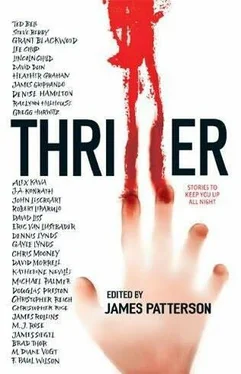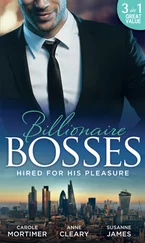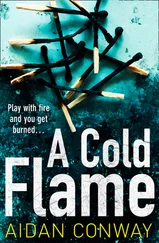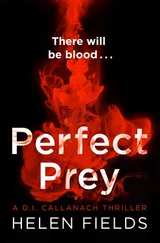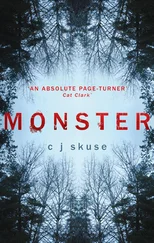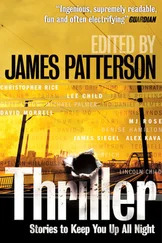"Get away from there!"
He grabbed a handful of Henry's coat. Henry let the slim aluminum tube slip from his hand. It bounced off the back seat and rolled onto the floorboard. The chauffeur jerked him backward. Henry let himself fall to the sidewalk. "Hey, what's the idea!"
"Go away, I said!" "Okay, okay."
Henry rose to his feet, brushed himself off and stumbled back across the street.
Behind him he heard an engine rev. Headlights washed over him. He glanced over his shoulder. The Mercedes was accelerating toward him. He dropped the bottle and ran.
Having sprung the trap, the Stasi was everywhere. For the next hour Henry sprinted through parks and hopped fences; down alleys and up fire escapes and over rooftops. Sirens warbled, sometimes in the distance, sometimes close. At every turn, blue strobes flashed off wet cobblestones and shop windows. Henry kept going, picking his way north and west until he reached the alley across from the apartment.
Crouched behind a hedge, he watched for five minutes, waiting for the skidding of tires and the blare of sirens. None came. He trotted across the street. As he mounted the steps, a pair of headlights pinned him, then a second pair, and a third. Car doors opened, slammed shut. Booted feet hammered the pavement.
"Schnell, schnell!"
"Halt!"
Henry charged up the stairs, fumbled with the key, then pushed through the door and locked it behind him. Boots pounded up the stairs. The door shuddered once, then again. The wooden jamb splintered. Henry rushed across the room, dropped to his knees, pried back the baseboard. Glass shattered. He glanced over his shoulder. An arm was reaching through the window, groping for the doorknob. Henry pulled the packet from its hole, then carried it to the woodstove. Inside, a single ember glowed orange. He blew on it. A flame sprung to life. He shoved the packet inside. Too big. He folded it, tried again.
The door crashed open.
"Halt!"
He turned around and caught a fleeting glimpse of a rifle butt arcing toward his face. Everything went black.
Blindfolded and shackled, he was taken to what he assumed was either Stasi headquarters on Normannenstrasse or to Ho-henschoenhausen prison. No one spoke to him and no questions were asked. Around the edges of the blindfold he could see shoes coming and going in his cell, then he felt the prick of a needle and suddenly he was floating. Sounds and smells and sensations merged. He heard Russian voices, smelled the tang of cigarette smoke, felt himself being stripped naked.
His days became a blur as he teetered at the edge of consciousness. His world narrowed: the prick of the needle.the drug coursing hot in his veins.the rhythmic thump of steel wheels on tracks.the hoot of a train's whistle.the stench of burning coal. In that small, still-lucid part of his brain, Henry knew who had him and where he was going.
On the morning of the third or fourth or fifth day, the train groaned to a stop.
He was lifted to his feet and dragged down steps. He felt the crunch of snow under his feet and through the blindfold he could see sunlight. He was trundled into a car. After a short ride he was jerked out and marched down more steps, then a long corridor. He was shoved from behind. He stumbled forward and bumped into a wall. A door slammed shut behind him.
Henry put his back to the wall and slid down to the floor. Lubyanka.
He sat in darkness for three days. On the fourth day, two guards came for him. He was blindfolded and marched down a corridor, then several flights of stairs, then another corridor, ever deeper into the bowels of the prison.
He was guided into a room, where he was shackled to a chair bolted to the floor. His blindfold was removed. The room was small and square, windowless, with a single bulb hanging from the ceiling. A man in an MgB uniform stood before him. The man's epaulets told Henry he was a colonel. Second Chief Directorate, he thought. Bad, bad news.
"Good morning, Mr. Caulder," the colonel said in accented English.
Henry wasn't surprised they knew his name. He'd run dozens of operations in Berlin, either from the ground or at a distance, causing both the Stasi and the MgB a lot of heartache.
The colonel said, "I've been wanting to meet you for a long time."
"And now that you have, I assume you'll let me go?"
The colonel chuckled. "No, I'm afraid not. Let's have a talk, shall we?"
Over the next two days the colonel interrogated him twenty hours a day, at dawn, during the day, in the middle of the night, sometimes for twelve hours, sometimes only an hour. All the questions were variations on a theme: Why had he come to East Berlin?
Henry remained silent.
On the third day, the beatings began. He was hung by his wrists from the ceiling while a bald, heavyset man worked on him with a truncheon, pausing only to catch his breath or to let the colonel ask questions.
Still Henry remained silent.
At the start of the second week, he was brought again to the interrogation room. This time, however, he was stripped naked and shackled to the chair. The colonel stood in the corner, smoking, watching him. The bald man entered, carrying what looked like a birdhouse.
No, not a birdhouse, Henry thought. Get a hold of yourself. You know what it is.
A hand-cranked field phone.
The bald man attached wires first to the phone, then with alligator clips to Henry's testicles. He then nodded at the colonel, who walked over and stared down at Henry. "One last chance."
Henry simply shook his head. The bald man started cranking.
He managed to hold on for another week. Once he started talking, it came in a flood, from his arrival at Tempelhof, to his meetings with Belikov, Kondrash and Preminin, to his capture at the Pieck apartment. Friendly now, the colonel walked Henry through the story again, and again, and again, looking for inconsistencies and contradictions. Finally, on the fifth day the colonel ended the questioning and dismissed the stenographer.
"Don't feel bad, my friend. You did your best."
For the first time in forty days, Henry Caulder smiled.
Now, standing at the threshold of the execution room, Henry felt that same smile forming on his lips. He quashed it and stepped forward. The space was identical to the interrogation room, save two features: The walls were draped in thick, heavily stained canvas, and off to one side lay a body bag.
"Good morning," the colonel said.
"That's a matter of perspective, isn't it?"
"Indeed. A poor choice of words. I wish it hadn't come to this, but I have my orders."
"Don't we all."
"We are enemies, you and I, but professionals nevertheless. You were doing your job and I was doing mine. Of course, they don't see it that way."
"They never do."
"It will be quick, I promise."
"What's going to happen to my people?" Henry asked. "Be-likov, Kondrash and Preminin?" He already knew the answer, but he wanted to hear the words.
"It's already happened. They were convicted of treason and executed yesterday."
"And my network?"
"We're investigating each of their commands. We'll have confessions soon."
"I have no doubt," Henry said. "On your knees, please."
Henry turned to face the wall and knelt down. He was waiting for the fear to come, ready for it to fill his chest like acid, but nothing happened. He felt peace. Suddenly a cough welled up in his chest. He heaved, bent double with the pain until the spasm passed. He wiped his mouth. His palm came back bloody.
"Pneumonia," the colonel said.
No, I don't think so, Henry thought.
Ironic that only now he was feeling the symptoms. The doctor had given him four months, no more, before the cancer would metastasize and spread from his lungs to his brain, then to the rest of his organs. Past that, he had a week, perhaps two.
Читать дальше
